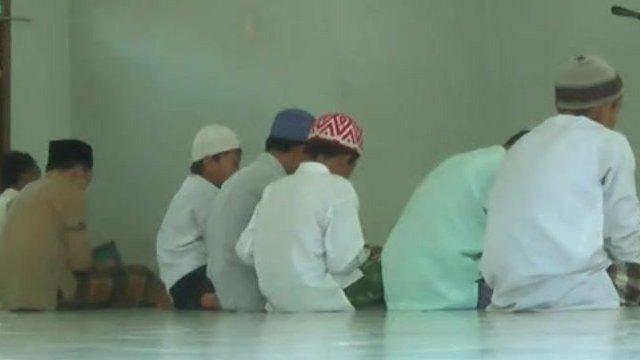The Islamic State threat in South East Asia
- Published
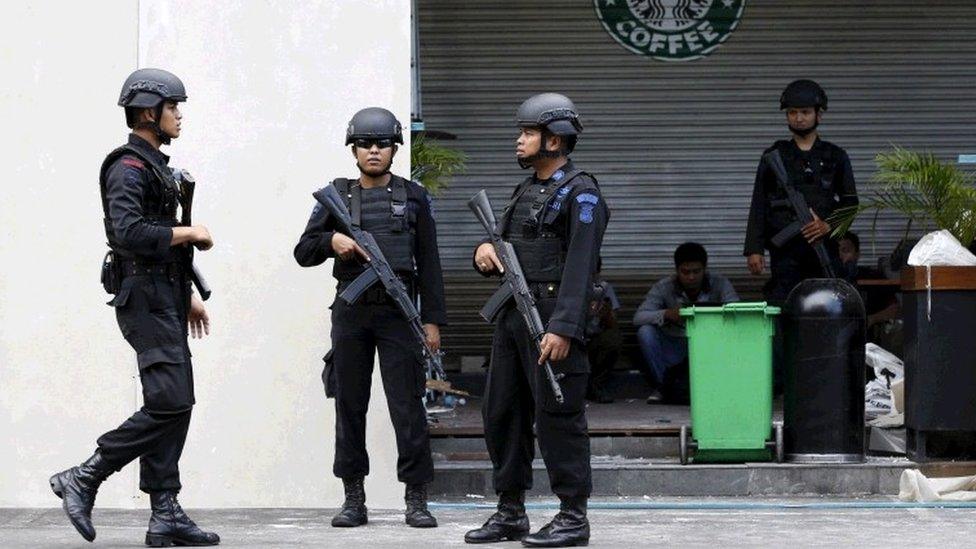
The Jakarta bombings in January followed warnings last year that a major attack was planned
Several countries in South East Asia have been anticipating attacks by the so-called Islamic State (IS) group in the region.
Indonesia, Malaysia and Singapore warned their citizens in 2015 that it was a question of when, rather than if, they would take place and this foresight was sadly proven right with the attack on Jakarta in January this year.
Authorities in the region have learned from Indonesia's experience of the Bali bombings in 2002 and several attacks afterward. These were carried out by Jemaah Islamiyah (JI) militants inspired by Al Qaeda, several of whom went to Afghanistan to fight with the Taliban in the 1980s, and then returned to the region with the skills and knowledge to carry out large-scale attacks.
IS is proving a new draw to would-be jihadists across the region. Several militant groups in South East Asia have pledged allegiance to it and up to 1,000 people are believed to have left Malaysia, Indonesia and the Philippines to fight with the group in Syria and Iraq.
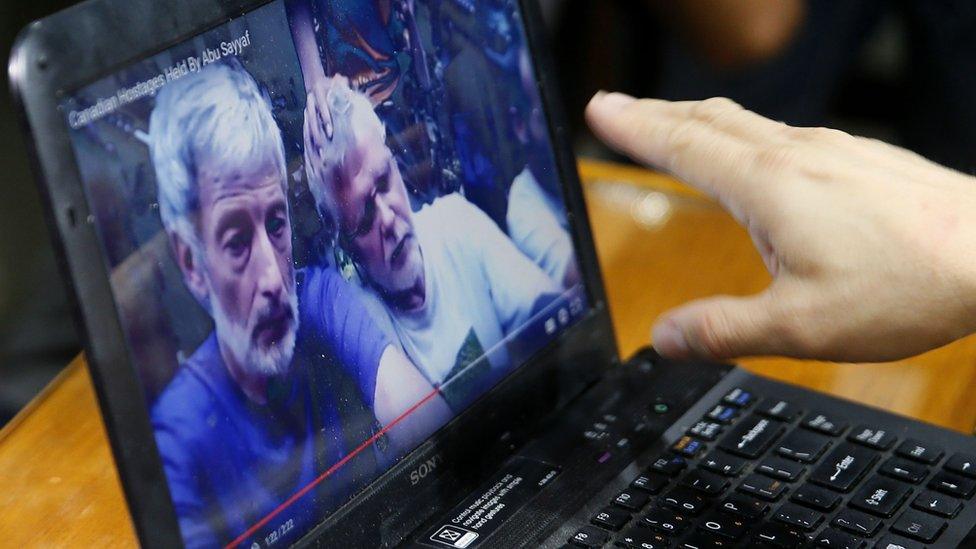
Abu Sayyaf has a history of kidnapping tourists for ransom
Indonesian and Malay speakers there have formed an official wing of the group, known as Katibah Nusantara Daulah Islamiyah, and security experts believe its leaders are trying to fund and encourage attacks across the region. Over the past year, IS has increased its propaganda efforts in Indonesian, which is similar to Malay, inciting people to join it but also to carry out attacks where they are.
The Jakarta attack in January, originally thought to have been directed by an Indonesian militant in Syria called Bahrun Naim, is now believed to have been organised by a local group called Jamaah Anshar Khilifah, who are followers of an influential jailed cleric, Aman Abdurrahman.
The authorities have also been watching for foreign militants who may travel to the region to pass on or pick up battlefield knowledge. Militant groups in the region are known to work together and fighters sometimes travel to another country to evade arrest in their own. South East Asia's long coastlines and porous borders make it difficult for the authorities to monitor or stop such movement.

An Indonesian jihadist propaganda video
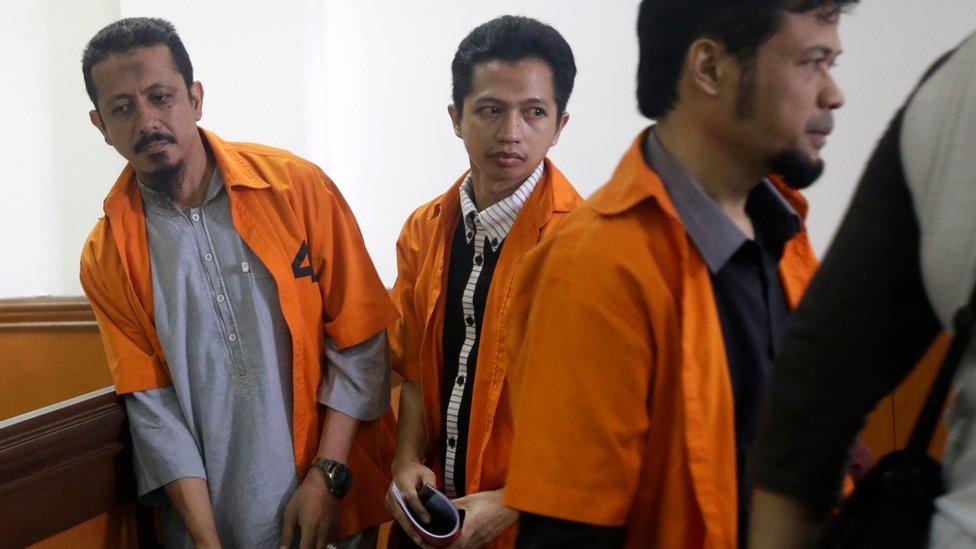
Indonesia put several men on trial in October on charges of recruiting for militant groups
In the last few months, the Philippine army has killed two Malaysians fighting with Abu Sayyaf in the south. Indonesian authorities have arrested four Uighurs from China over links to the Mujahidin Indonesia Timur (MIT) group in Sulawesi, and recently killed two who were fighting with MIT. Militants from Syria, Iraq and Turkey have also been sighted in the region, and arrested in some cases over planned attacks.
Security experts believe competition to lead a potential official IS regional province may spur further attacks. IS has acknowledged pledges by some groups in the region but not yet formally declared it a "province" as it has with other areas, such as Boko Haram in Africa, though there are signs it is moving toward doing so.
BBC Monitoring reports and analyses news from TV, radio, web and print media around the world. You can follow BBC Monitoring on Twitter, external and Facebook, external.
- Published15 October 2014
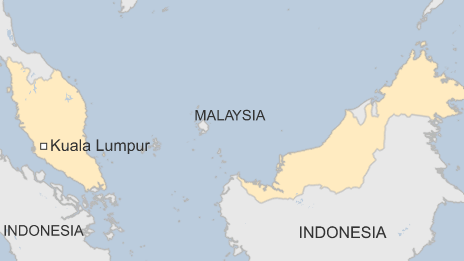
- Published11 August 2014
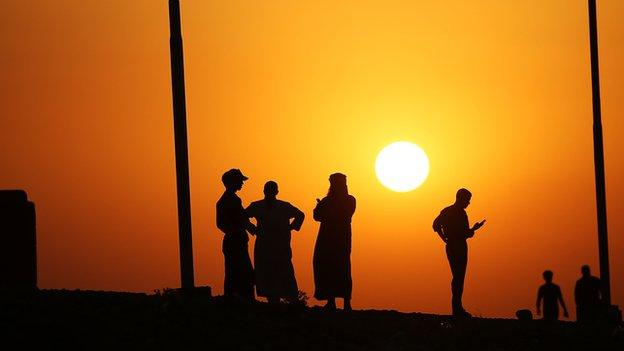
- Published4 September 2014
